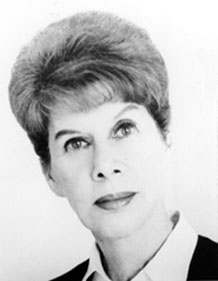A Quote by Lynne Truss
One of the things that all authors of fiction must learn to judge is whether - and in what detail - to describe the face of a character.
Related Quotes
Justice is the recognition of the fact that you cannot fake the character of men as you cannot fake the character of nature, that you must judge all men as conscientiously as you judge inanimate objects, with the same respect for truth, with the same incorruptible vision, by as pure and as rational a process of identification-that every man must be judged for what he is and treated accordingly.
Regardless of whether the authors I've translated have been "dead and canonized," or "living and established," or even simply "emerging," I must put myself to the same, old test: "can I do their texts justice?" I've translated twenty-one books, and except for three commissions, I "hand-picked" all my authors on the basis of whether my own peculiar idiosyncrasies would complement their own.
Science fiction properly conceived, like all serious fiction, however funny, is a way of trying to describe what is in fact going on, what people actually do and feel, how people relate to everything else in this vast sack, this belly of the universe, this womb of things to be and tomb of things that were, this unending story.
Even one word, or certainly one sentence, should be able to describe the basic characteristic that the scene has, or the character has, or the story has. And then you begin to detail that one spine, and you have offshoots from that spine, and it becomes more and more complex, but all of it stems from that one-word, one-line theme, which can give the character, the scene, or the play its uniqueness.
The judge's authority depends upon the assumption that he speaks with the mouth of others. That is to say, the momentum of his utterances must be greater than any which his personal reputation and character can command, if it is to do the work assigned to it - if it is to stand against the passionate resentments arising out of the interests he must frustrate - for while a judge must discover some composition with the dominant trends of his times, he must preserve his authority by cloaking himself in the majesty of an overshadowing past.
I would say that most of my books are contemporary realistic fiction... a couple, maybe three, fall into the 'historic fiction' category. Science fiction is not a favorite genre of mine, though I have greatly enjoyed some of the work of Ursula LeGuin. I haven't read much science fiction so I don't know other sci-fi authors.
It's easy to sell good news like this, and the authors confidently rely on classic fallacious arguments. They argue by declaration, which is what makes the books so amusing. In matter-of-fact, authoritative tones, the authors tell us how plants and human beings exchange energy - or they describe what angels look like, whether or how they're sexed, how they communicate with human beings, and how they differ from ghosts. Readers might be expected to wonder, How do they know?
Living authors, therefore, are usually, bad companions. If they have not gained character, they seek to do so by methods often ridiculous, always disgusting; and if they have established a character, they are silent for fear of losing by their tongue what they have acquired by their pen--for many authors converse much more foolishly than Goldsmith, who have never written half so well.
I never like to judge the character. I just have to leave my feelings of pity, or fear, about a character - whatever I feel towards the character, I try to leave to one side. It's good to have them, but it doesn't help me. I can't act those things. I just to play the character as truthfully as I can.







































